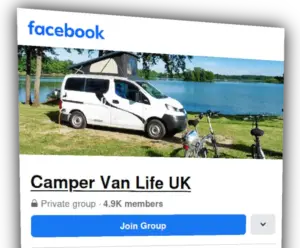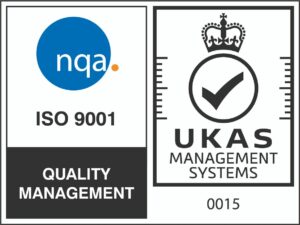Total Cost of Campervan
Ownership
What’s It Going to Cost Me to Own a Campervan? I Don't Mean the Screen Price, I Mean the Total Cost of Ownership Over Its Lifetime. Now There’s a Popular Question.
Now the average campervan we might be selling you today might start at £40,00 to £45,000 or it might be £60,00 or £70,000, it depends on what it is, and it depends on the full specification. There’s quite a range. You might choose to buy it with cash, or you might choose to buy it monthly on a finance agreement, which is very popular as well.
What is It Going to Cost Over Its Lifespan?
Well, I’ll tell you how the depreciation works out. With cars, people generally think that in the first two or three years it loses most of its value, and that seems to be borne out by the numbers. It’s almost like a J-curve – the price drops quite steeply and then it starts to flatten out.
With campervans we tend to find that it’s a lot gentler. It seems to be – in very round numbers (don’t hold me to this) – in the first year you could expect to lose your 20 per cent VAT, then it tends to drop by about 10 per cent per annum. So you can see over the first few years the drop is a lot less.
However, because of the rise in demand for campervans and various supply issues over the last few years, we are finding that prices are rising for preloved campervans (and other vehicles) which means a campervan can be seen as a great investment and the initial loss is balanced out.
We know campervans are a great investment because sometimes we buy back our own converted vehicles – maybe the owners upgrade to a bigger one, or they choose a smaller one, or they want to change from a manual gearbox to an automatic gearbox, or they have more children, or their circumstances change. Sometimes we sell them on commission for people who, for whatever reason, have a change of lifestyle, or decide to emigrate, or for whatever reason find they just don’t need their campervan any more. Hard to believe, isn’t it?
Anyway, we know kind of what the residual value is like. So it seems to me that the depreciation is a lot gentler than with a car. And that means it’s better to buy your campervan brand new, if you are going to keep it for, say, a 10-year lifespan, which is typically what people think of when they come to see us. So that’s your depreciation.
What About Servicing Costs?
Well, servicing is broadly similar to a car; most of these base vehicles are designed as commercial vans, to do long, long distances with minimal maintenance, so service intervals of 24,000 miles or two years are not uncommon.
Habitation
The habitation part – the part that you live in – that needs an annual inspection service from us here, and that’s quite reasonably priced, and we also have monthly plans that will cover both those things. We have several levels to help people predict what their costs are going to be.
In terms of parts replacement and breakdowns, these modern vehicles are so reliable that even when you get to the end of the warranty, I can really count on the fingers of one hand the issues and failures we’ve had with each model over the years. It’s unlikely you’ll have any mechanical problems. Of course routine wearing parts like brake pads and brake discs and so on will need replacement, and will cost broadly a similar amount to a family car. If you’ve got any particular questions, of course, we can find the answers for you.
SPEAK WITH AN EXPERT
Book Your Call Now
Find your dream campervan today
Hi there, I’m Daniel – founder of Sussex Campervans.
I’d love to help you find your dream campervan – book below to speak with an expert.
Speak soon,
Daniel
When Should We Meet?
Insurance
Insurance I have talked about before – but you may be surprised to know that it often costs less than insuring your car, rather than more, and I think that’s because campervan owners are seen as good risks by the specialist campervan insurers.
Tax
The Road Fund Licence is currently charged as if the vehicle is a van, so I think currently it’s around £275 per annum (2021/22), and it’s not linked to emissions. So that means it has remained fairly constant over the years. And it needs to, because when these vans aren’t converted they are used for deliveries commercially and people need to be able to predict what the ongoing costs are likely to be.
Fuel Economy
Now, fuel economy is another cost. In this vehicle, which is a Volkswagen Transporter fuel economy is quoted in the 40mpg range – and the Renault Trafic is broadly similar; they have similar engines. In the real world perhaps you may achieve a little less than that, depending how and where you drive, but I think to say you should achieve around 40mpg combined isn’t unfair. Please don’t quote me on that, but if you meet some of our customers you can ask them what fuel economy they are actually achieving from their campervans. On the little Nissan NV200 CamperCar the fuel economy is even better because it’s a lighter vehicle.
So we’ve covered servicing, road fund licence, insurance, depreciation, and we know that breakdowns aren’t something our owners regularly experience. So I guess that’s covered the total cost of ownership. If you have some more specific questions do give us a call on 01403 336 369 or send us an email to hello@sussexcampervans.com as we’d love to chat it through with you on the phone.


